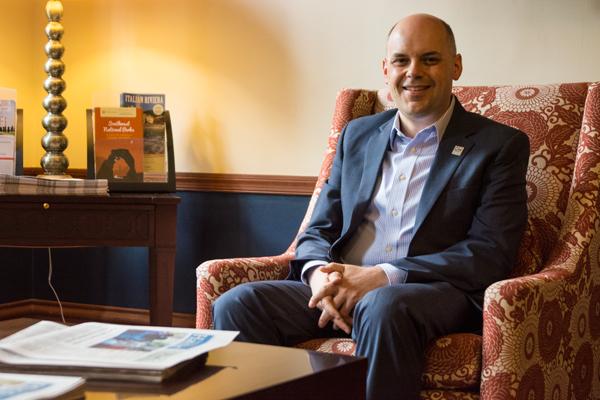Alumni celebrating their one, five and 10-year reunions this month are receiving an extra boost to their gifts from an anonymous donor, who has pledged to match donations up to $10,000.
Although the donation challenge is centered around the upcoming Alumni Weekend celebrations, the weekend’s organizers say the event should be used to strengthen bonds among alumni, not to raise money for the University.
Aristide Collins, the vice president of development and alumni relations, said in an email that officials expect about 2,000 graduates to attend the event at the end of the month. Collins said gifts, like the anonymous donor’s, should encourage alumni to donate beyond their weekend on campus.
“By leveraging an anonymous reunion donor’s gift, we are able to boost participation among young alumni and inspire other alumni to make philanthropic commitments to their alma mater,” Collins said. “Overall, GW’s reunion efforts have increased attendance and giving among celebrating classes.”
Some of the new programs this year, like 3-D printing demonstrations, make-your-own-textile workshops, George’s Amazing Race and lessons with athletic coaches, are meant to engage all ages of alumni, Collins said.
He said the weekend will also be a time for alumni to learn about the $1 billion campaign through collateral, videos and messaging. The campaign is set to wrap up in June 2018 and has raised more than $890 million so far, according to the campaign’s website.
Lauren Walinsky Savoy, the communications director in the office of development and alumni relations, said classes celebrating a special reunion are encouraged to donate during Alumni Weekend in honor of the reunion.
“Many of our most engaged alumni are also donors, and we recognize them during Alumni Weekend with a brunch on Saturday morning and a donor lounge throughout the day Saturday,” Savoy said.
The University has struggled with a relatively low alumni giving rate of about 10 percent for years, but officials say the reunion weekend is not the time to increase that rate.
Jeremy Gosbee, the president of the alumni association, said that although the University’s giving rate is low, he does not think of Alumni Weekend as a top fundraising opportunity. It’s more important to focus on strengthening connections with alumni so they feel compelled to give in the future, he said.
“The whole idea is to get the focus back on campus and connecting people to each other and seeing what’s happening here at GW, and then when down the road they are asked, we hope they will be more inclined to participate,” Gosbee said.
Signature events throughout the weekend, like tours of former residence halls and new buildings, show alumni how the University has grown with the help from their donations, Gosbee said.
Other fundraising events that go on throughout the year, like Flag Day in the spring and Giving Tuesday during the holiday season, are better opportunities to fundraise because they are completely focused on donations, Gosbee said.
Experts agree that focusing too much on fundraising during an alumni weekend could be a deterrent to attendees who want to enjoy the weekend without being pumped for cash.
Mark Dollhopf, the former alumni association executive director at Yale University, said the point of alumni weekends is to strengthen the social network between alumni, not to garner donations.
“If alumni knew that you were getting them together solely for the purpose of trying to get them to give money, I think a lot of them would be resentful,” Dollhopf said.
Dollhopf said that if development staff are too direct in trying to solicit donations, it can lead to cynicism among alumni who believe that the University is only interested in their money.
Andrew Shaindlin, a former associate vice president for alumni relations and annual giving at Carnegie Mellon University, said alumni weekends help communities bond, which is important for laying the groundwork for future donations.
“This makes people feel more connected to their alma mater, which is a requirement if you’re going to ask people for financial support,” Shaindlin said in an email. “While one weekend event, by itself, doesn’t lead directly to a ‘big donation,’ it contributes to the cumulative, longer term effect of engaging the alumni. Over time, that leads to a greater probability of alumni support.”








